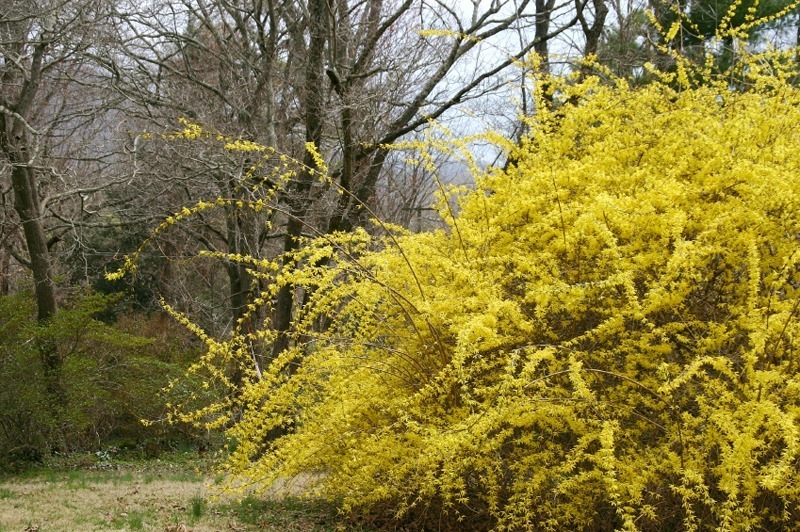A cheerful entrance to spring comes in the form of seeing an “ordinary, old-fashioned ” Forsythia in bloom. Its vivid yellow flowers and graceful form combine to make a cheerful bow to the season.

When Forsythia is properly sited, it can be extraordinary within our landscapes. Named in honor of a Scotsman by the name of William Forsyth, Superintendent of the Royal Gardens at Kensington, 1784-1804, this plant is considered to be more of a Victorian Era, Turf, Shrub. It is horribly misplaced when we “shoe-horn” and shear it into behaving as a foundation plant. Forsythia is rather large and its natural form is more fountain like and expressive when in full flower. Intended to be viewed from a distance, out away from the foundation for full enjoyment.
Forsythia prefers sun, medium moisture, and in the Great Plains we prefer to see them planted on eastern exposures if at all possible. The light on the east is of high quality, cooler and it reduces the likelihood of the flower buds opening too early. Early spring conditions are such that we have to anticipate the back and forth dance of winter allowing spring to take the lead. South and west exposures force the plant to respond too quickly for such weather inconsistencies.
We suggest the following three Forsythia cultivars for flower bud hardiness within our area:
Northern Sun 8-10 ft. high, 7-8 ft. wide
Meadowlark 7-9 ft. high, 6 ft. wide
Sunrise 5 ft. high, 5 ft. wide
Sometimes ordinary things can be turned into extraordinary outcomes just by altering our perspective on placement and usage of certain plants. Forsythia is certainly something that falls into such a Plant for That position.
Exciting! New plants in the garden! But wait....now what? How much water? When? Quick considerations before watering: Sun & Shade - Although most may say that shade gardens need less...
Spring fills us with wonder. Not in the ‘feeling of surprise mingled with admiration, caused by something beautiful’ kind of way. More along the lines of ‘what can I plant in my empty...